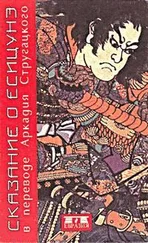Unknown - Deportation
Здесь есть возможность читать онлайн «Unknown - Deportation» весь текст электронной книги совершенно бесплатно (целиком полную версию без сокращений). В некоторых случаях можно слушать аудио, скачать через торрент в формате fb2 и присутствует краткое содержание. Жанр: Старинная литература, на английском языке. Описание произведения, (предисловие) а так же отзывы посетителей доступны на портале библиотеки ЛибКат.
- Название:Deportation
- Автор:
- Жанр:
- Год:неизвестен
- ISBN:нет данных
- Рейтинг книги:3 / 5. Голосов: 1
-
Избранное:Добавить в избранное
- Отзывы:
-
Ваша оценка:
- 60
- 1
- 2
- 3
- 4
- 5
Deportation: краткое содержание, описание и аннотация
Предлагаем к чтению аннотацию, описание, краткое содержание или предисловие (зависит от того, что написал сам автор книги «Deportation»). Если вы не нашли необходимую информацию о книге — напишите в комментариях, мы постараемся отыскать её.
Deportation — читать онлайн бесплатно полную книгу (весь текст) целиком
Ниже представлен текст книги, разбитый по страницам. Система сохранения места последней прочитанной страницы, позволяет с удобством читать онлайн бесплатно книгу «Deportation», без необходимости каждый раз заново искать на чём Вы остановились. Поставьте закладку, и сможете в любой момент перейти на страницу, на которой закончили чтение.
Интервал:
Закладка:
— The Catholic Church teaches that? I would never have thought. Oh yes, you separated from the Vatican.
— More precisely, we drove them the hell out of here. Our consultant, a doctor of theology at Oxford, has scientifically prove n popes are impostors, and wrote a good catechism about it in 5000 characters . It’s easy to read on a mobile or elnote — Jella tapped the electronic notebook — it’s used not only here, but also in South America, India and Australia. On our bishop’s website you can download the text and the audio.
— I sure will — the reporter said.
8. Hernando Torres, the coordinator of the government
In the office of “Pacific social news” there was a traditional mayhem accompanying the release of the morning edition. Political news chief of department, muttering something about molasses, snatched the memory stick and the folder with paper copies from Sekar’s hands, and rushed into the elevator to the floor where the layout was being done.
“No hello , no how are you", muttered Sekar into space.
The clock was showing quarter past four. This meant Helena has already been seeing her seventh dream, and there was no reason to hurry home. Having decided that, he thought to sit in the cafe for an hour, get a grasp of the latest news , and chat with the colleagues. As a matter of fact , most of the breaking news shift did the same, and there already were half a dozen people. Sekar heard loud clapping, stomping and whistling, and wondered for a moment whether people were watching football. Nothing of the sort. The TV was tuned to ABC-online, showing some round table, and, judging by the gestures of the participants, it’s been close to the boiling point.
The emotions in the café were also over the edge, and in the eye of the storm was Inaori Atairoa from the IT department. She was dressed, as usual, in faded denim shorts and a dazzling white shirt with short sleeves. The shirt was unbuttoned and tied to a knot around the navel, and it was possible to describe the figure of a girl almost completely. The trick, however, was not in the shape, but in that elusive plastic of movement that distinguished utafoa (one could see from a kilometer away Inaori belonged to that race). Usually, five or six men would be buzzing around her, but this early in the morning, there were only two.
The first was the always smiling Ernst Oakwood, an electrical engineer wear ing his uniform overalls as if it was a 5 thousand pounds tailored suit. He moved to Meganesia relatively recently, in his own words: "because here it is a lot more fun than in Glasgow" . Apparently, this was indeed the case, since he had to spend the last two years at home in a barred room due to the fact that some work he did on the alarm of some bank qualified by the laws of the United Kingdom for a "complicity in a burglary". He got caught purely by an accident , so no one really doubted his expertise.
The other was a tall, athletic Sikh (not to be confused with a Hindu, or else he would be offended), with a deceptively dreamy expression on his face. His name was Lal Singh, in a past life he was a lieutenant of the Meganesian Rapid Reaction Corps. Two years ago, during an operation in the Emirate of Al-Shana, a piece of mine shrapnel got in to his knee, putting an end to his military career. He could live on a pension insurance, but that was boring. He tried to work in the police , which proved to be boring as well , and perhaps because of that his reports appeared to resemble literary miniatures. Soon, nudged by his colleagues, he tried his luck in a journalism contest , which ended up with him getting the position of a military observer with “Pacific social news”.
At the moment, these three were outnoising the TV, and it was absolutely impossible to understand what was happening on the screen.
The couple at the central table, on the contrary, was ignoring the foreign policy on principle. They played international draughts and considered th at to be much more meaningful than any talk show. However, this was the only thing common between them, and every thing else was in ultimate contrast. Vikskef Engvarstrom, a criminal news reporter, was a typical Norwegian, fair-haired, gray-eyed, almost two meters tall. Chez Joey of the science news department was tiny and of unclear ethnicity. She could equally well pass for a Malay, Chinese, Spanish, Latin , or a North African native. The knowledge of five languages and a natural talent for the most reckless flirtation allowed her to ingratiate herself to anyone, and the two academic degrees of hers, in physics and philology, allowed her to make good use of any information so obtained.
At a table in the corner sat Zhang Zhang. He was the one Sekar went to, knowing from experience that this Chinese has a remarkable talent to notice everything that happens and to express it clearly. He was of an uncertain age, somewhere between 50 and 60. Actually, everything in his biography was uncertain. He arrived to Meganesia (more precisely, still British Oceania back then) two years before the Aluminum revolution, as they say, for ideological reasons, was directly involved in mine warfare against the colonial administration Tintung island, and then he was a sergeant of mercenaries during the suppression of the Batak coup. However, these were rumors, and Zhang answered questions about his past with meaningful quotes from Lao Tzu ("One who talks a lot — often fails" or "Who knows — doesn’t tell, who tells — doesn’t know"). Presently, he led the environmental department, but people came from all floors for consultations on all matters, from stock prices to cat treatments.
— Noisy — stated Zhang , smiled , and poured the colleague half a cup of flower tea.
— Yeah — agreed Sekar — what is happening?
The Chinese shrugged.
— A woman.
He was clearly referring to Atairoa, who, like a typical young islander, could work up any number of men within seven feet from her.
— I meant: what’s on TV? — clarified Sekar.
— Coordinator Torres is in Montreal, fighting off a pack of dogs — said Zhang succinctly.
— For how long?
— About 27 minutes.
— Oh, that ... did they bite him badly?
— Not really. They are stupid. Interfere with each other.
— And why is this nervous old man with canary-yellow tie shaking his pen?
— He’s some kind of a lawyer from the Sorbonne. I think it's his way of conducting public appearances. He argues that the current Meganesian system of equal social land rights came to pass in an uncivilized way.
— Is he succeeding?
Zhang smiled and shook his head.
— He stumbled on the question of the bases of private property rights on these lands. He tried to derive these rights from the announcement of trans-Malaysian islands as a British crown possession and their transfer to the East Indian Company, but he forgot that utafoa already lived there for a thousand years. Torres explained that the aluminum Revolution restored utafoa law on the equal rights of all citizens to the lands and fishing waters.
— Judging by professor’s reaction, they don’t teach that in Sorbonne — said Sekar.
Hernando Torres was about 50. The coordinator, an agile, dark -skinned man of average height with a neat belly, was dressed very informally. He wore loose gray trousers, bright Hawaiian shirt, and a scarf tied in cowboy style around his neck. The scarf displayed the Meganesian flag — black, white and yellow trefoil on an azure field. In the opinion of the revolutionary Symbolists, it meant the union of three races inhabiting the atolls, but the far from grandiloquent meganezians long ago started to refer to it simply as "our propeller".
The seasoned reporter's eye of Malik Sekar immediately spotted that Torres was not in a business of win ning the debate, and not interested in his opponents at all . He was delivering a show, work ing hard to impress the audience, while using the opponents as a backdrop.
Читать дальшеИнтервал:
Закладка:
Похожие книги на «Deportation»
Представляем Вашему вниманию похожие книги на «Deportation» списком для выбора. Мы отобрали схожую по названию и смыслу литературу в надежде предоставить читателям больше вариантов отыскать новые, интересные, ещё непрочитанные произведения.
Обсуждение, отзывы о книге «Deportation» и просто собственные мнения читателей. Оставьте ваши комментарии, напишите, что Вы думаете о произведении, его смысле или главных героях. Укажите что конкретно понравилось, а что нет, и почему Вы так считаете.





